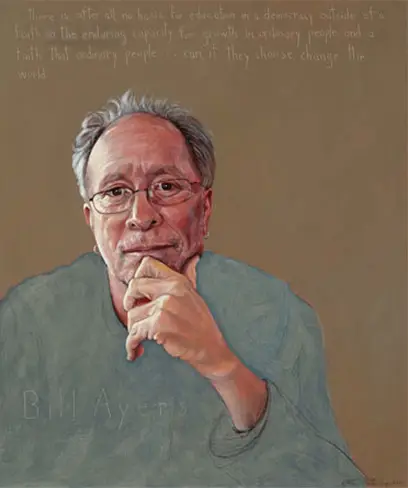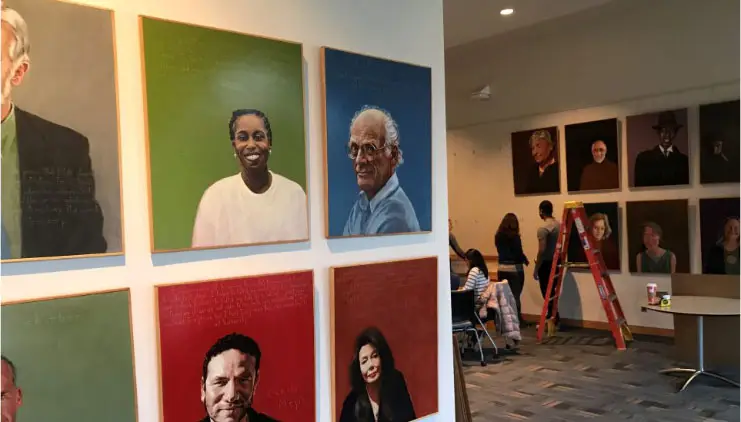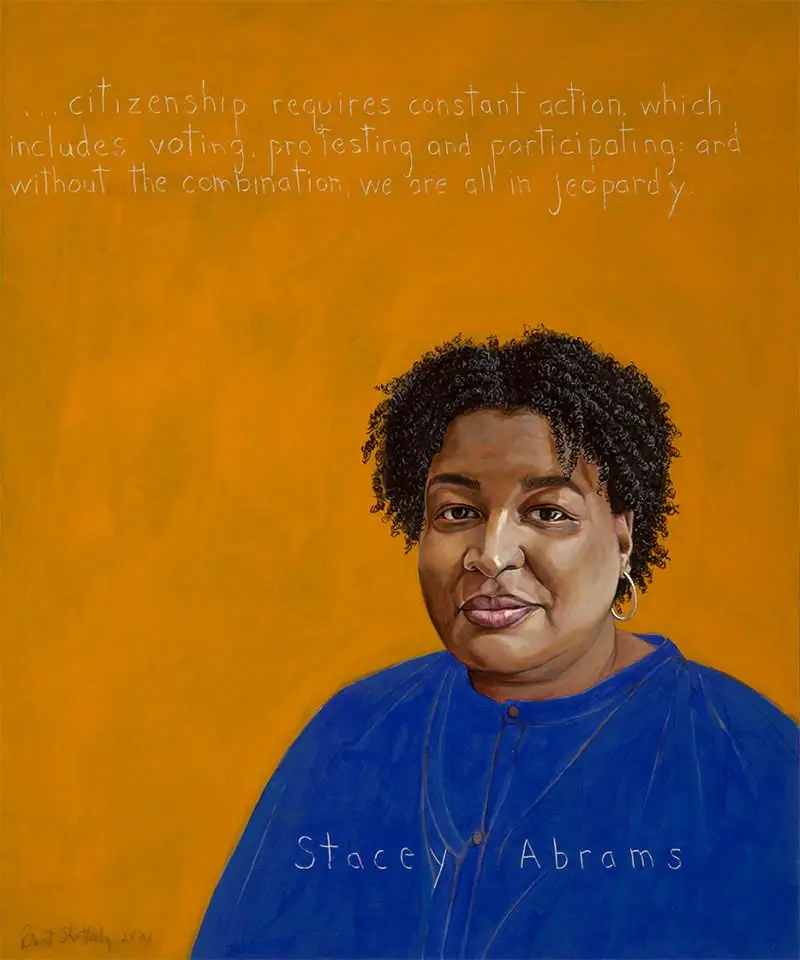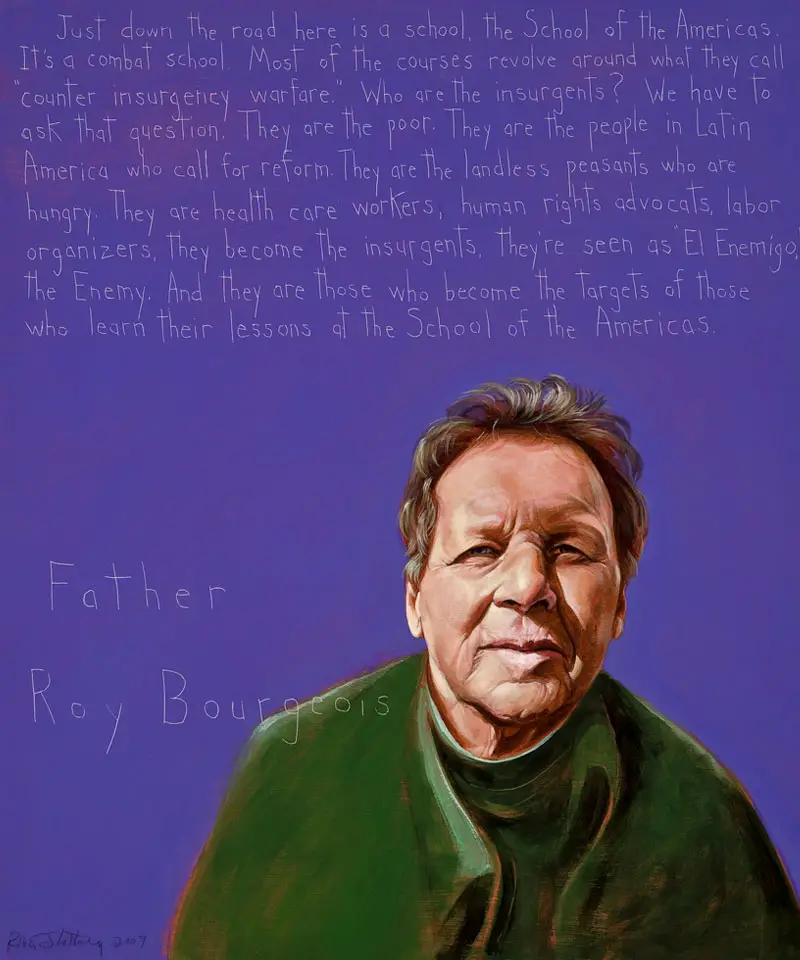
Bill Ayers
Bill Ayers
Educational Theorist, Professor, Writer, Anti-War and Civil Rights Activist : b. 1944
“There is, after all, no basis for education in a democracy outside of a faith in the enduring capacity for growth in ordinary people and a faith that ordinary people … can, if they choose, change the world.”
Speaking Truth to Youth
Educator and activist Bill Ayers advises us to stop whining, open our eyes, be astonished, do something, rethink, and repeat.
Biography
William Charles (Bill) Ayers considers himself “a work in progress, swimming through a sea of contradictions.” He believes that whatever he says about anyone else or what anyone says about him, “should be thought of as partial, contingent, unfinished, and doubtful as a useful summary.”
Ayers is known both for his 1960s activism opposing the Vietnam War and racial injustice, as well as his current work in education reform, curriculum, and instruction. One summary of Ayers’ life would include acts that put him on the FBI’s list of most wanted criminals and led to a life in hiding before surrendering to authorities and having those charges dropped. Another summary would include a lifetime of activism and public service for the benefit of the underprivileged. His is not a simple story.
Ayers studied primary education at the University of Michigan in Ann Arbor. At 21, he was a co-founder and director of the Children’s Community School (CCS), which was modeled after the Freedom Schools of the Southern Black Freedom Movement. The CCS co-founders believed that children learn best in a non-judgmental environment. They encouraged cooperation rather than competition, wanting to create a good model for an integrated school. “Not only do we have black and white kids in the same school,” Ayers said, “but we don’t make any value judgments about either of those groups of kids, because making value judgments turns out to be racist.” Much of Ayers’ subsequent educational philosophy was drawn from his experiences at CCS.
In the mid-1960s, Ayers became involved in the New Left and Students for a Democratic Society (SDS), rising to national prominence as an SDS leader in 1968 and 1969. The mission of SDS was to influence the U.S. political system in order to achieve international peace and remove the threat of nuclear war. In domestic matters, it sought to eliminate racial discrimination and economic inequality, and to increase the power and prominence of trade unions.
In June 1969, Weatherman, an SDS splinter group, took control of SDS at its national convention and Ayers was elected Education Secretary. In 1970, Ayers and others created underground collectives in major cities throughout the country and became known as The Weather Underground. They planned and carried out several bombings, including one on the Capitol Building in Washington, D.C., the Pentagon, and police stations.
As fugitive members of The Weather Underground, Ayers and fellow activist Bernardine Dohrn married and began having children. Not wanting their kids to grow up in hiding, they eventually decided to turn themselves in. By the time their case would have gone to trial, government attorneys requested that all charges be dropped due to the illegal tactics used by the FBI to gather evidence against them.
The Weather Underground has been accused of being a terrorist group, but Ayers disagrees, making a distinction between terrorism and vandalism. “We weren’t terrorists . . . we did not commit random acts of terror against people. Terrorism was what was being practiced by the United States in the countryside of Vietnam where thousands of people were being killed every week.” He said, “While we did claim several extreme acts, they were acts of extreme vandalism against property,” adding, “We killed no one and hurt no one.”
After coming out of hiding, Ayers returned to education, obtaining masters degrees from Bank Street College, Teachers College at Columbia University, and Bennington College, and his doctorate at Columbia. He joined the College of Education at the University of Illinois, Chicago, in 1987, and became Distinguished Professor of Education in 1999, a position he held through 2010. He is the founder of the Small Schools Workshop and the Center for Youth and Society.
Ayers has written numerous books and articles on societal equity and peace and the “enduring capacity for growth in ordinary people.” His early books include: Fugitive Days: Memoirs of and Anti-War Activist (2001); On the Side of the Child: Summerhill Revisited (2003); Handbook of Social Justice in Education (2009); and Race Course: Against White Supremacy (with Bernadine Dohrn, 2009). Among many books about education, he later wrote: Public Enemy. Confessions of an American Dissident (2013); Demand The Impossible: A Radical Manifesto (2016); “You Can’t Fire the Bad Ones!”: And 18 Other Myths about Teachers, Teachers Unions, and Public Education (2018); and When Freedom Is the Question, Abolition Is the Answer: Reflections on Collective Liberation (2024). He also maintains an active blog.
According to Ayers, “Social justice . . . requires full recognition of the humanity of each person, and this requires an entirely new kind of education, one geared toward transformation rather than transmission. Transformative education asks students to become artists, actors, activists, and authors of their own lives. To change themselves, to make the world their own.”
Ayers lives in his hometown of Chicago with his wife, Bernardine, where they raised their biological children, Zayd and Malik, and Chesa Boudin (as his legal guardians).
Related Portraits
Programs
Americans Who Tell the Truth (AWTT) offers a variety of ways to engage with its portraits and portrait subjects. Host an exhibit, use our free lesson plans and educational programs, or engage with a member of the AWTT team or portrait subjects.

Education
AWTT has educational materials and lesson plans that ask students to grapple with truth, justice, and freedom.

Exhibits & Community Engagement
AWTT encourages community engagement programs and exhibits accompanied by public events that stimulate dialogue around citizenship, education, and activism.



